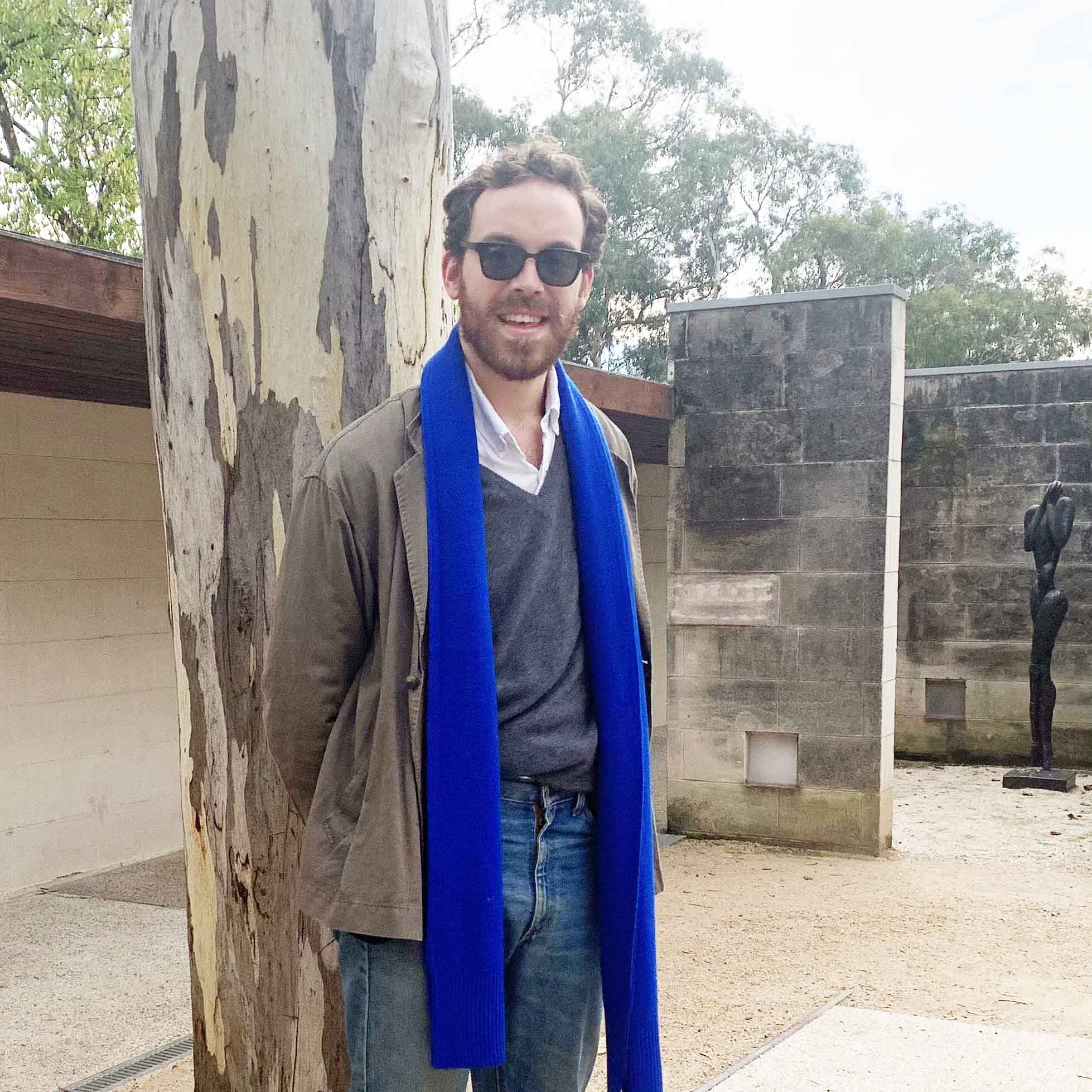In an age of COVID-19, restricted borders, and mental fatigue – one UQ alumnus is battling it all and winning. William Holbrook, a past UQ English Literature student, has been accepted into Cambridge University to undertake the prestigious Master of Philosophy where he will continue his literature studies. The school caught up with William to discuss his studies at UQ, plans for the future and to see what advice he had for future literature scholars.
How did your time at UQ prepare you for your future studies?
UQ’s English Literature syllabus provided me with a very solid grounding for postgraduate study. If you’re in Year 12 and you’re a wide reader and want to get into the habit of thinking carefully about what you read, this is definitely the best degree in Queensland for you. This is due above all to the quality of teaching at UQ. My tutors and lecturers in English — people like Associate Professor Lisa O’Connell, Dr Meegan Hasted, Dr Richard Newman, or Dr Margaret Henderson — were patient, charismatic, and extremely knowledgeable.
What was your reaction to being accepted to Cambridge and can you describe what you will be studying?
I was over the moon! I felt especially lucky to get a scholarship. Postgraduate study at an overseas university is only possible for most Australians if you manage to get a scholarship as well as get accepted to the university itself. I was awarded the Trinity College External Research Studentship, which covers all costs and pays a stipend. If anyone reading this is thinking of applying to universities overseas I’d encourage them to research very carefully the different scholarships which are available.
Cambridge’s English M.Phil. is a one-year program and can be taken as is, or in preparation for a PhD. It’s also periodised: you can enrol in a course focussed on Medieval and Renaissance literature, 18th-C and Romantic literature, or Modern and Contemporary literature. I’m doing this last option, which stretches from 1830 to the present, and I think I’ll be focussing on the uses of Romanticism in the literature of the Thirties.

What do you love about literature and what has your past research focused on?
I basically hold with the view that literature allows you to see the world from different perspectives: that, as someone once said, it heals the wound, without undermining the privilege, of individuality. That’s one thing I love about literature. My Honours, was on twentieth-century receptions of the great nineteenth-century prose stylist John Ruskin. Ruskin has been enormously important for many different kinds of people: his influence is there in early trade unionism, the Arts and Craft movement, modern architecture and town planning, and art education. More recently, he’s been taken up in environmental philosophy. Personally, I was interested in the responses to Ruskin’s writings about catastrophe by two very strange modernists — the German-Jewish Marxist essayist Walter Benjamin and the Irish poet W.B. Yeats — and what these responses tell us about Ruskin, and about the politics of catastrophe.
Do you have any advice for students considering studying English Literature?
The best preparation for studying English at university is to read widely for pleasure. That’s because literary criticism draws on techniques from philosophy, history, sociology, cultural studies, and more, so almost everything you read you can consider grist to your mill. This porousness of the discipline is intellectually very liberating. Nevertheless literary criticism is also its own thing, and it’d pay to get some sense of what that is — I recommend having a look at Terry Eagleton’s famous Literary Theory: An Introduction. A few other tips: whenever your teacher, or anyone you’re reading, mentions a book you haven’t heard of, go and look it up in the library. In your essays: never be boring, and admit complexity and nuance. My tutor Dr Richard Newman also used to tell me never to let literature speak for itself — or, as he wrote in the margin of a paper of mine, ‘take all opportunities for detail, in order to remind your reader (whom, as an act of courtesy, you must represent as a doubting and mane-shakingly free being) that a generous perceptiveness is at work’. Good advice.

What's next?
I’m not sure at the moment. After this M.Phil. I may go on to a PhD in literature. I’m also very interested in politics, and my other degree was in Law, so I might also go down that route. Either way, I’m sure that the training which I received from my teachers in UQ’s English Literature program will stand me in good stead.
The School wishes William all the best with his studies at Cambridge University.




